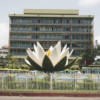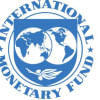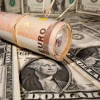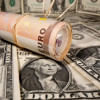Forex reserves rise by $538m in a week

Bangladesh's foreign currency reserves have reached $19.2 billion, an increase by $538 million from a week ago.
The improvement comes a month after the central bank relinquished its control over the rate-setting mechanism and introduced a more flexible exchange rate regime.
The reserves were $18.67 billion a week earlier, Bangladesh Bank data showed. It was $19.82 billion on May 8. It has been calculated on the basis of the formula of the International Monetary Fund (IMF).
Central bank officials say the forex reserves are on the rise thanks to several reasons, including the flexible exchange rate known as crawling peg.
The banking regulator on May 8 introduced the Crawling Peg Mid-Rate (CPMR) for buying and selling foreign currencies and allowed banks to buy and sell US dollars freely at around Tk 117.
On June 13, the highest inter-bank exchange rate stood at Tk 118 per dollar.
Bankers are charging importers more than Tk 118 per USD. It is also offering the same rate to remitters, industry insiders said.
The relaxed rules governing offshore banking have been another reason behind the pick-up in the reserves, they added.
In March this year, the parliament passed the Offshore Banking Act 2024 to give a much-needed boost to the country's desperate efforts to improve the US dollar supply.
The reserves have been declining sharply since the beginning of the Russia-Ukraine war as the conflict sent the prices of commodities such as oil and gas higher, hurting import-dependent nations like Bangladesh.
However, mismanagement in the forex market, frequent policy changes by the central bank, and the gap between the official exchange rate and the unofficial one are also to blame, according to bankers.
Since August 2021, forex reserves have fallen by $24 billion.

 For all latest news, follow The Daily Star's Google News channel.
For all latest news, follow The Daily Star's Google News channel. 








Comments